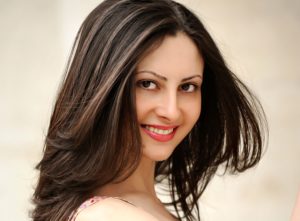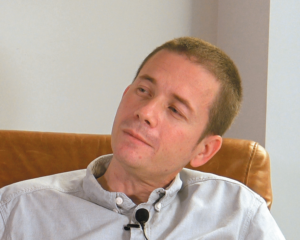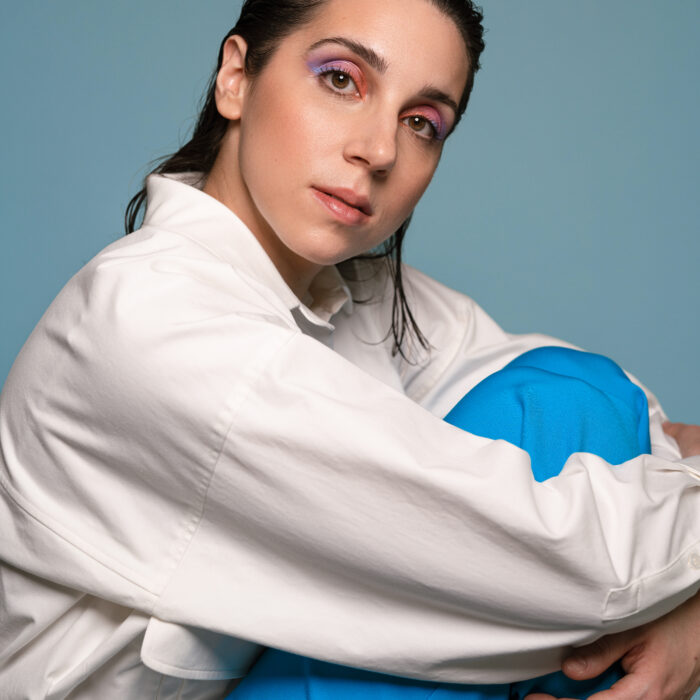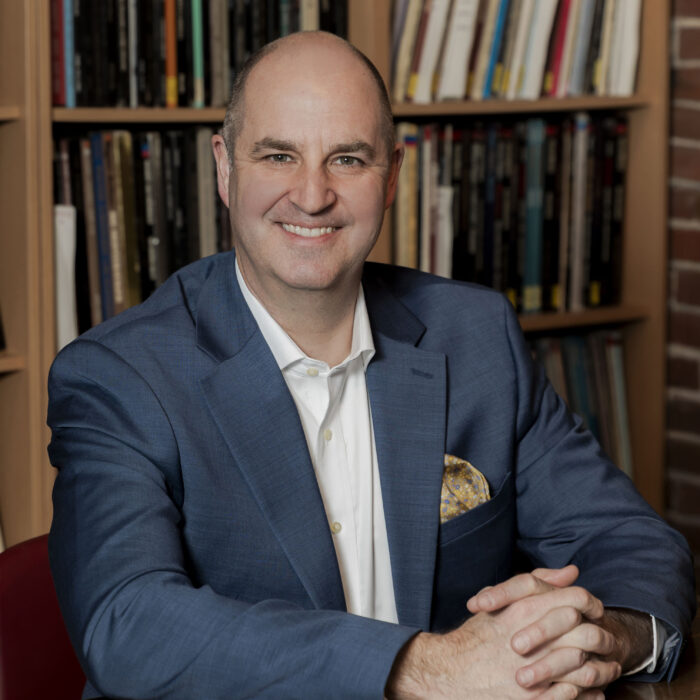
Q&A: Soprano Elena Tsallagova on Her Love for Mozart, Learning from Ileana Cotrubas, Russian Roots
By Dejan Vukosavljevic(Credit: Allan Richard Tobis)
Russian lyric coloratura soprano Elena Tsallagova is a member of the ensemble of the Deutsche Oper Berlin. She has performed on a number of the biggest opera stages in the world, including Opéra National de Paris and Lyric Opera of Chicago, among others.
Known for her deep vocal versatility and theatrical prowess, Tsallagova has performed title or leading roles in the number of operas including Micaëla in “Carmen,” Gilda in “Rigoletto,” Adina in “L’elisir d’amore,” Liù in “Turandot,” Pamina in “Die Zauberflöte,” Sophie in “Werther,” Musetta in “La bohème,” Violetta in “La Traviata,” and Berthe in “Le prophète,” among others.
OperaWire recently talked to Elena Tsallagova after her debut at the Mozart Week in Salzburg in Mozart’s version of Handel’s oratorio “The Messiah” about her musical upbringing, learning from Ileana Cotrubas, and the role she identifies with the most.
OperaWire: You were born in Vladikavkaz, a small town in Russia. How did you open up to the world of opera?
Elena Tsallagova: I think I was very lucky with my education. I started as a choreographer, not a musician. I was a ballet dancer, and then I realized I would like to do something more. I always wanted to be onstage, I loved the stage. At first, I started to play in the theater, as an actress. I was not a singer back then. But my dad is a singer, and I admired so much what he was doing, that I wished to do the same. He has such a beautiful voice, so it was a true inspiration for me. And I wanted to try, to sing as well.
The first opera I saw was Wagner’s “Parsifal.” I was 11 years old at that time. At first I did not like it, it seemed a bit loud for me. I was a bit disappointed then.
Now it is obvious to me that I was still very young to hear such a grand opera at that age. It was just too early. Thinking about that, I wish it were something by Mozart – let’s say, “Die Zauberflöte.” I believe it would have been a much easier approach. After a while I started to listen to more and more operas – and I just fell in love. I loved the sound of orchestra as well. What also came as a very important revelation for me – I loved the voices as a part of that sound.
OW: You studied at the St. Petersburg Conservatory. What was most valuable about that experience?
ET: St. Petersburg was a dream for me, as Vladikavkaz is really a small city. When I first came to St. Petersburg I went straight away to the Mariinsky Theatre to listen to the opera, because in Vladikavkaz at that time we did not have an opera house.
I enrolled with the St. Petersburg Conservatory, and I could not say that I felt very comfortable there in the beginning. I suddenly realized how much work I needed to do to even begin to feel comfortable. So, those first steps were a little bit difficult for me.
My unease stemmed pretty much from the awareness of all the big names that studied there. All of my colleagues were amazing. They were just all so talented. As studies in St. Petersburg were part of my biggest dreams, all of a sudden all those big names, my professors – they were there, talking to me. But it was not what I expected at the beginning. Of course, I learned so much there and eventually it all became quite a great experience for me.
OW: How did you know that you would become an opera singer?
ET: That knowledge was really not something strange for me, particularly because of my dad. He was singing all of his life, including arias from the different operas. He was not a soloist, but a choir singer. But he influenced me in a big way.
Now it is not easy for me to remember the breaking point, but I like to see that as a continuing process of revelations. When I arrived in St. Petersburg I already knew what I would like to do I the future, so I just took that path.
OW: You are also a ballet dancer and choreographer. How did your experience in these two areas help you during studies in St. Petersburg?
ET: I really can not separate three things that I cherish deeply – singing, declamation and dancing. And I can not separate myself from them. They all come together for me. As a performer, onstage, sometimes I just forget that I am singing, and it feels as if I am telling the story. I am very passionate about the words that I am saying onstage.
Luckily for me, in many operas composers were writing the parts in a way that I always wanted to perform – for example, “Pelléas et Mélisande” is a big opera, but at the same time there is a lot of declamation in it. That is what I experienced many times.
Also, nowadays when I am singing the role of Violetta in “La Traviata” I really love to put little moments of storytelling there as well. It is actually a combination of singing and storytelling.
OW: Your vocal coach was a famous soprano Ileana Cotrubaș. What did you learn working with her?
ET: Meeting Ileana Cotrubaș was a turning point in my life. She heard me during the Masterclass in Finland, came to me and said, “I would like to adopt you.” She asked me if I would like to come and stay in her house, adding “you don’t need to pay anything.” Even now, when I am saying this, I have chills down my spine. At that time I already planned to stay in the Mariinsky Theatre, to be the part of its big ensemble. I just wanted to develop further in order to start singing bigger roles.
But everything changed when I met Ileana Cotrubaș. She invited me to stay in her villa in Nice. So I went to France, and worked with her for over two months. I worked really hard. And I still remember vividly – the walls of the villa were covered with her pictures from La Scala, and other big stages where she was appearing. That was very inspiring for me.
She also had lots of recordings – I still remember her recording of Cavalli’s opera “La Calisto.” That was the recording from Glyndebourne in 1971. Since then I have always wanted to do that role.
I worked very hard with her, and she eventually advised me to enroll in the Music Academy, adding that it would be the best path for me as a young singer. She told me to go to Paris, which I eventually did – and it was a success. I entered the Academy in Paris, which was kind of surprise at that time for me, because I did not speak French. And you know, all the lessons were in French, so I had to learn the French language very quickly, in order to feel more comfortable and be able to study.
OW: You recently performed at the Salzburg Mozart week, in Handel’s oratorio “The Messiah.” The oratorio was gently reworked and re-orchestrated by Mozart, including the translation into the German language. How has Mozart’s stamp influenced the work?
ET: From my point of view – the soprano part in the oratorio – Mozart’s version is an absolute purity. There are no ornaments in the sound. With Handel you can color the sound with ornamentation. It is a special way of singing, more coloraturas. With Mozart, that is a pure sound, even without vibrato of the voice.
Probably it is a bit more difficult with Mozart’s version because of the control of the voice, but the German translation also helps very much, because it is very distinctive, it is very clear. Also, the consonants are in the right place. Mozart gave very clear instructions where the sound needs to stop and what you can do. Thus, there is no much freedom in the Mozart’s version of the oratorio, vocally speaking, comparing to Handel. With Handel, you can give more of your own improvisation and taste. Mozart corresponds better, in my view, with the religious side of the piece.
OW: How would you describe your collaboration with the famed tenor and director Rolando Villazón, especially in the light of his position as the Artistic Director of the Salzburg Mozart Week?
ET: This was not my first meeting with Rolando Villazón. I met him when he was performing in “Pelléas et Mélisande” at the Staatsoper Berlin. I’ve always admired his energy. In Salzburg I had another opportunity to witness this immense positive energy that Rolando is radiating around. That is a very prominent artistic, creative energy.
I think the Mozart Week in Salzburg is very much based on this wonderful positivity that Rolando is emitting around. He is also very passionate about what he is doing. And he is really doing a great job putting all these talented people together. We had a really great collaboration.
OW: Your work ranges from the classical lyric repertoire to the baroque coloratura. What do you find the most challenging?
ET: I really love all of the roles that I’ve done so far, regardless of the importance of the role. I love big roles as much as I like small roles. They are so very close to my heart, that I am not even able to say if I like more the role of Violetta in “La Traviata” or Der Waldvogel in “Siegfried.” I invest much of my energy and passion to these roles.
So, yes – every role is a challenge.
OW: While you sing a wide range of repertory, there isn’t much Russian opera you have sung. Is that something you anticipate adding in the future?
ET: First, I would really love to do more Russian operas when I am in Europe now, but unfortunately Tchaikovsky and other Russian composers did not write so many pieces that are suitable for my type of voice. I am a bit higher voice than, say Tatyana in “Eugene Onegin.” So, I can only admire that artistry from a distance, but I can not really perform it.
I am also very often performing songs by Tchaikovsky or Rachmaninoff in my concerts. In that way I am compensating my nostalgic feelings for the Russian music.
Also, I think that Russians have very big emotional ranges, and it is pretty much attractive. Russian composers attract me very much, because I feel and see so much variety and depth in their music. You don’t need to know too much about the Russian music in order to feel it. It just goes straightaway to you because it is so understandable. It speaks to you straightaway. And it doesn’t matter which nationality you are, because I think that people all over the world love Russian music.
OW: Speaking of new roles, what is your process like for preparing new operas?
ET: First, I listen. Nowadays, we have lots of possibilities to listen to great singers, on youtube and other media channels. Before, I was not listening so much. Now I think it is easier in a way, to have that as an option, a possibility.
Before, I would just open the score and ask my pianist to play it for me, and I was reading from the score, the first sight. Now, I am preparing my roles also with the recordings of the great singers. Basically, I am supplementing the score study with the recordings.
If someone was to ask me what was the most difficult part of my job, maybe hinting at the stage and the performance itself, I’d say no. Performance is a joy. Because onstage you feel effortless. So much positive energy is onstage, and that is the right feeling. That also means that all the preparations you’ve done before and all the work you’ve done is the right one. The performance should bring you only joy and satisfaction.
But the truly difficult part is the preparation. I usually take around one year to prepare for the major role and little less for the concerts. And then comes the text, the most important part of the preparation process. I translate each word and looking for the meanings of the words in the text, through different perspectives.
These days productions can be very abstract. Sometimes it can be conflicting or even opposite with what is written in the score. So in those terms, preparation process should look a bit different comparing to the preparations in the past. Of course, music does not change, words do not change, general meaning is there, but we have to be flexible and to adapt to the circumstances. We have, as singers, to adapt the meaning to the vision of the director. And I think this is a little step further for my generation, what we’re doing now. And opera definitely needs to develop, and to be a source of new and fresh ideas.
And there is another part of the story telling – it is important for young singers to say something, to be personal onstage, to give their own message, and not just to copy the performances from the past. Modern directors are giving us that opportunity.
OW: Which characters that you have performed so far are the most similar to you, and which are the most different? And why?
I believe that I am very lucky. I have experienced works of so many composers up to this point of my career. At the same time I am singing works from Mozart or Verdi, for example. That all brings me much joy, because it is all so very different.
But if I had to choose, I would say that I identify the most with Mélisande. I feel very close to her, and sometimes when I am onstage I completely forget who I really am. I just incorporate Mélisande into my vision. And honestly, I just feel very comfortable with this role. It also gives me lot of imagination, maybe because I don’t have lots of examples of Mélisande that have been performed before. This also helps, so I can be free, and then find something which is completely mine.
In another way, “La Traviata” is one of the most performed piece in the history of opera. We’ve had so many great Violettas in the past. I try to give my Violetta the most from my teacher Ileana Cotrubaș, because she was one of the best Violettas ever. One of her recordings of “La Traviata” with the famed conductor Carlos Kleiber is one of the most iconic recordings of the opera.
But for Mélisande, it is completely different. There is the example of Mary Garden, the soprano who created the role, there is even a fascinating documentary about it. So I can really give many personal touches to Mélisande.
OW: What is your advice for the young singers that are just starting their careers?
ET: I am receiving lots of messages from the young singers looking for some kind of opinion or an advice. And I am happily giving advices. Since I do not see myself as a teacher right now, what I could say for the young singers trying to succeed in this field would be – do not push too much. Do not rush, do not push your voice. Nowadays we have very fast lives, and almost everything feels like rushing. But I would say, there is time for everything.





